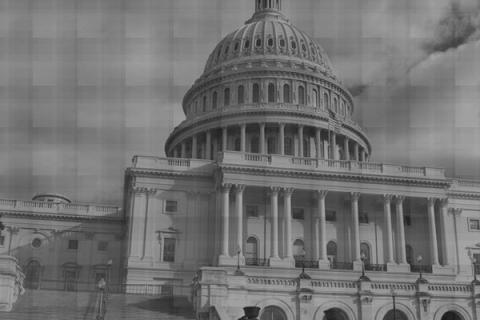Some third parties prefer to work outside the electoral system, focusing on organizing, direct action, and working towards fundamental changes in society. They would perhaps agree with Emma Goldman's famous / notorious statement, "If voting changed anything, they'd make it illegal." This can include organizations focused on a particular cause, NGOs and nonprofits, special interest groups and others who see our problems as deeply-rooted, with structural changes being needed.
On the Left they would loosely be grouped together as being the hard left or radicals, and sometimes can have a profound, if indirect effect. Many of the anti-Iraq war protests were organized and controlled by micro-Marxist parties who used the mass organizations as front groups. There's nothing wrong with front groups. Organizers across the political spectrum use them, sometimes quite effectively. But a major problem can arise. The micro-party or group behind the scenes can use the front group as a recruiting tool for the party. This puts it in direct collision with the avowed goal of the front group to build a mass organization.
You can't have it both ways. Using the front group to recruit means moderates never have any real say and are generally pushed out. But without moderates and members from across the political spectrum, you can't build a mass group and are doomed to irrelevance. (And before someone squawks about what I said about anti-war front groups, I have direct knowledge of this and was there when it happened.)
Front groups can be highly effective organizing tools, but you need to get your priorities straight and know exactly what your goals are. Even better, make the goals clear to members. Don't have hidden agendas or hide that it's a front group. Then you will be more effective and able to genuinely accomplish something.
The Green Party and The Peace and Freedom Party, both of which have ballot status in California, function as hybrids. Some members work within the electoral system while others organize and feel that elections are pointless. Sometimes this can lead to internal conflict. Indeed, this split has been in the Green Party since the 1980's in Germany and has been dubbed the realos vs. the fundies, with the realos being pragmatists working to elect Greens, while the fundies tend to be further left and favor activism, getting in the streets, and organizing. I think any third party or group working towards change will have this kind of split. The best you can do is accept that it's there and try to keep things friendly and focused.
One of the most effective means of organizing is the community organizing approach developed by Saul Alinsky. Any third party or group can use his principles. Indeed, anti-ACORN filmmaker James O'Keefe quoted from Alinsky's Rules for Radicals as inspiration when he was posting those damning videos. Clearly, the Right has read and learned from Alinsky, and the Left might do well to re-read him again.
Alinsky was not socialist and in fact had little use for them and could not have achieved his objectives if he had been. He once said "Quotes from Mao, Castro, and Che Guevara... are as germane to our highly technological, computerized society as a stagecoach on a jet runway at Kennedy airport." His first success was in organizing the desperately poor, mostly eastern European immigrant area called Back of the Yards in Chicago in the 1930's. He did this teaming up with the Catholic Church, which was staunchly anti-Communist. He told them, if I organize and they get better pay, then contributions to your churches will go up. Plus, if we don't work together, then the Communists probably will organize them. They teamed up and the workers eventually unionized from the meatpacking plants. From there, he started many groups, one of which recruited a young farm worker in 1952 named Cesar Chavez.
Alinsky and his organizations didn't have preconceived agendas. When organizing in a new area, they started by listening to what people said, to what their concerns were. Then they helped them begin a group. Today, in a crucial difference with other organizing styles, community organizers quite deliberately let the people run their own group when they're ready to and when the group is considered to be strong enough. The group then becomes the very essence of community organizing, locally based and locally operated, with no hidden agendas.
Alinsky was a non-socialist left-wing radical. However, his ideas and tactics can be used by any group across the political spectrum that is working towards change. This country is probably on the verge of an upsurge in third and independent parties as well as non-electoral organizing. Me, I favor both approaches, electoral and in the streets. Let's all do what we can to break the two-party duopoly and get real reform.

